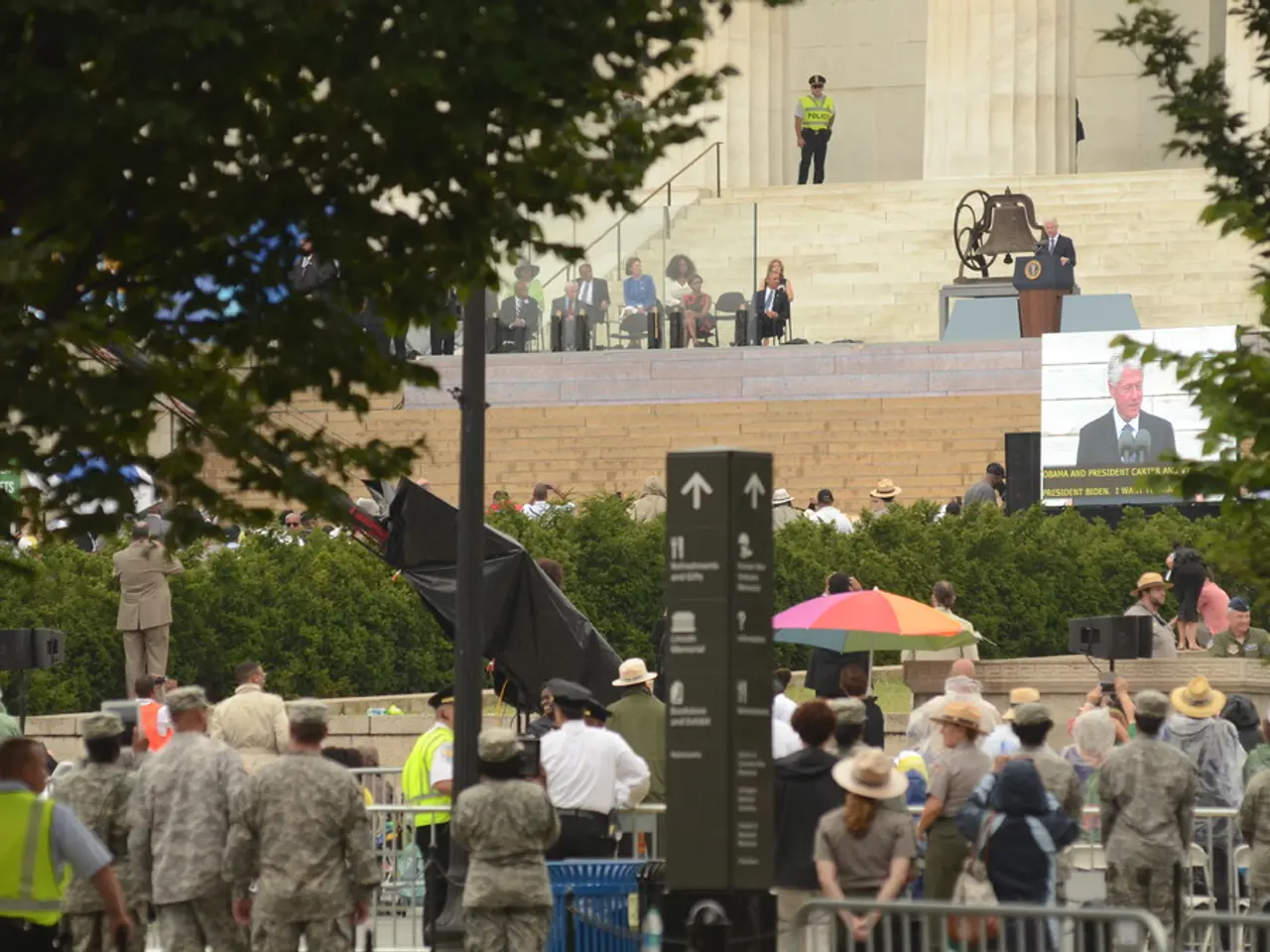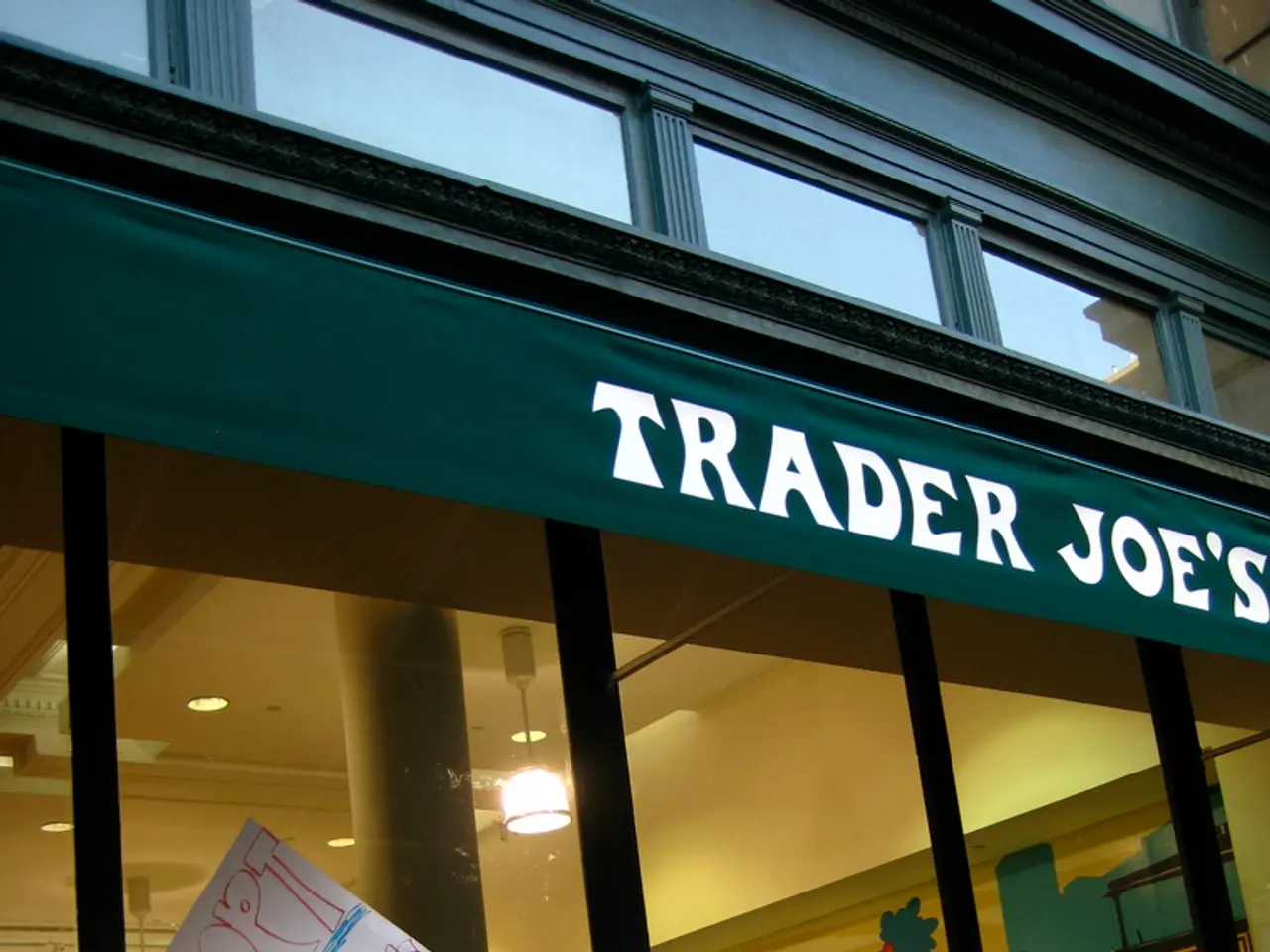U.S. and India agree on framework for talks to draft a bilateral trade agreement
The Deal's in the Works: India and the US in Pursuit of a Bilateral Trade Agreement
India-US: A Step Closer to a Trade PactIndia and the United States have taken a significant stride in their bilateral trade relations, with the terms for negotiations on a potential trade pact now finalized. This development was announced by US Vice-President, J.D. Vance, during his address in Jaipur on India-US ties, marking a crucial step towards realizing the vision shared by President Donald Trump and Prime Minister Narendra Modi for a comprehensive trade deal.
Jaipur's Rendezvous: Vance Urges India to Drop BarriersAt the Rajasthan International Centre, the US Vice-President spoke of the importance of dropping non-tariff barriers, a topic brought up during his productive discussions with the Prime Minister in New Delhi on Monday evening. He emphasized the need for balanced, open, stable, and fair trade partners, emphasizing that the US is looking to rebalance global trade to foster a shared future for both nations.
Odisha Ties with Tony Blair Institute: Energy Sector ReformsMeanwhile, in other news, Odisha signed a pact with the Tony Blair Institute to drive energy sector reforms – a move that underscores India's commitment to modernizing major sectors of its economy.
Airport Buffer Zones: Rules in the WorksIn light of the Ahmedabad airport crash, the government has been drafting new rules to clear airport buffer zones to ensure the safety and efficiency of airport operations.
Friends in Power: India and the USAddressing the close bilateral defense ties, the US Vice-President spoke of the Javelin missiles and the Stryker infantry combat vehicles and the plans for co-production of munitions by the two nations. He also flagged the launch of the "Joint Autonomous Systems Alliance" between both nations, which will develop advanced maritime systems to maintain the region's security and stability against hostile powers.
Strides in AI and Energy CooperationThe US Vice-President highlighted the importance of energy security as a foundation for advancements in artificial intelligence (AI) and invited India to purchase more advanced military equipment from the United States, including the F-35 stealth aircraft. Additionally, he discussed the potential benefits of ethanol produced by American farmers, which could help boost India's energy security.
Amendments to India's Nuclear Liability LawWelcoming the Indian government's move to amend the nuclear liabilities law, the US Vice-President noted that the existing law had previously acted as a barrier to US companies exporting small nuclear reactors and building larger ones in India. This amendment is expected to pave the way for increased cooperation between the two countries in the nuclear energy sector, as well as benefiting sectors such as pharma, undersea cables, and other critical goods.
A Popular Government: Modi's Global ReputationDescribing the Modi government as arguably the most popular in the democratic world (after 11 years of continuous power), the US Vice-President hailed the PM as a "serious leader" and a "tough negotiator who drives a hard bargain" in protecting India's interests. The PM, he said, is liked by his three children and considered among the two leaders globally who are admired by the Vance family.
Quad Summit and a Stronger Indo-US RelationshipReiterating the importance of the Indo-US relationship, the US Vice-President indicated that the Quad Summit would be held in autumn this year, with the address expected to be delivered by President Trump. He also stressed that a stronger Indo-US relationship will lead to greater stability in the Indo-Pacific, adding that India serves as a vital partner and ally in maintaining security and fostering growth in the region.
Unprecedented Times and a New Era for Indo-US RelationsIn a brief departure from political talks, the US Vice-President acknowledged the warmth and hospitality extended by the Prime Minister during the visit and announced plans for a visit to Agra to see the Taj Mahal with his Indian-origin wife, Usha, and their family. He also took a moment to express his admiration for the PM's high domestic approval ratings while noting his displeasure with past American leaders who failed to protect American workers.
In these challenging times marked by economic rebalancing and heightened international tensions, the future of Indo-US relations appears bright, with both nations working tirelessly to forge an enduring and mutually beneficial partnership for a more secure, prosperous, and interconnected world.
- The negotiations for a potential trade pact between India and the US, a comprehensive trade deal envisioned by President Donald Trump and Prime Minister Narendra Modi, are expected to delve into various sectors such as finance, energy, and policy-and-legislation.
- Amendments to India's Nuclear Liability Law, recently welcomed by the US Vice-President, are set to impact several critical sectors, including pharma, undersea cables, and provide a pathway for increased cooperation between the two nations in the nuclear energy sector.
- In the realm of general-news, the US is looking to rebalance global trade with India, emphasizing the need for balanced, open, stable, and fair trade partners in politics, while also discussing the potential benefits of ethanol produced by American farmers, contributing to India's energy security.




